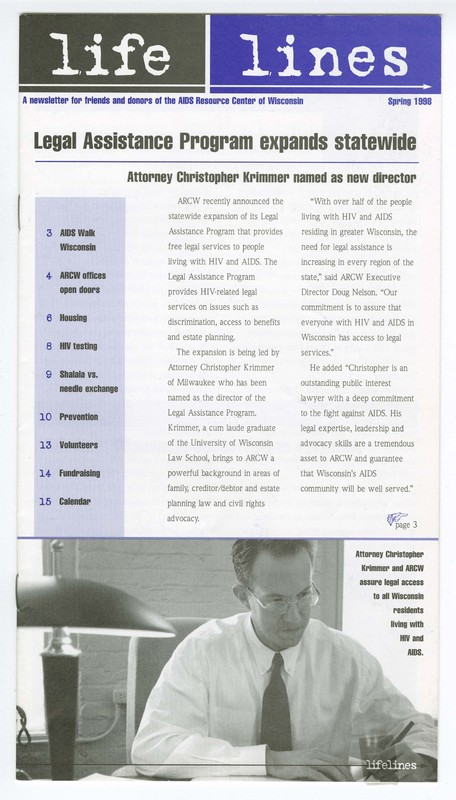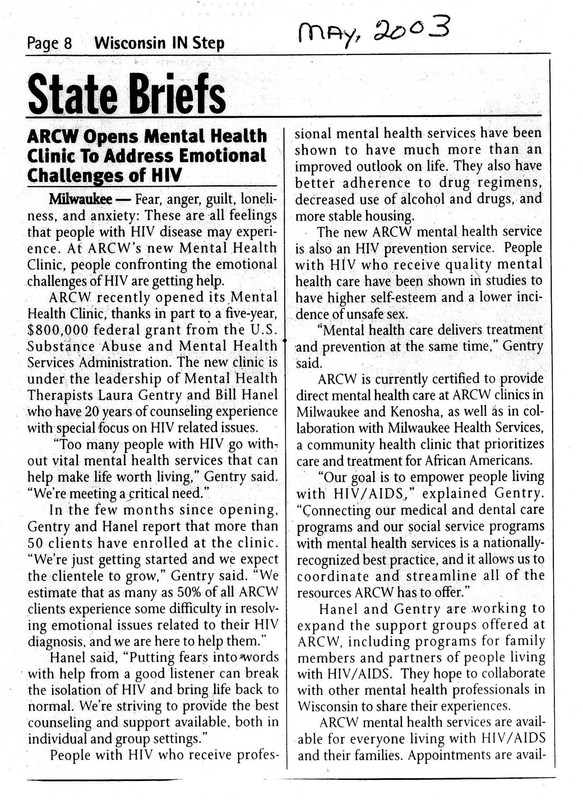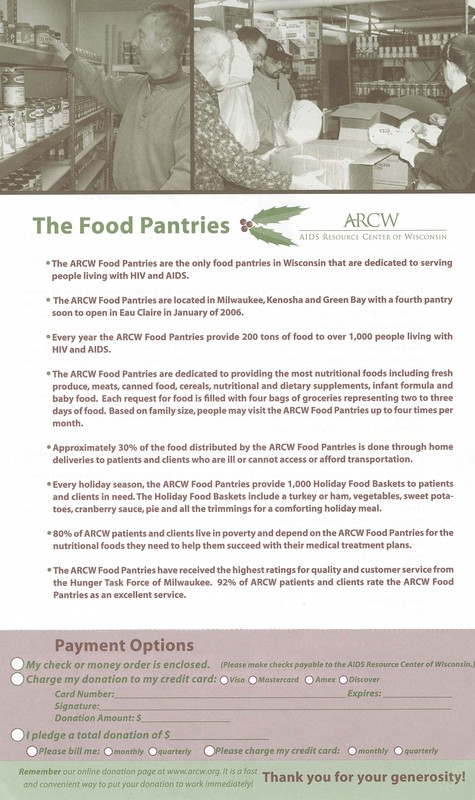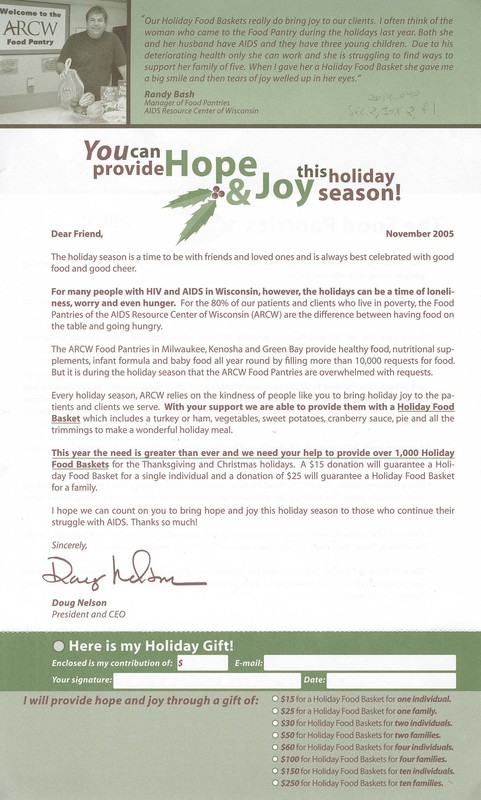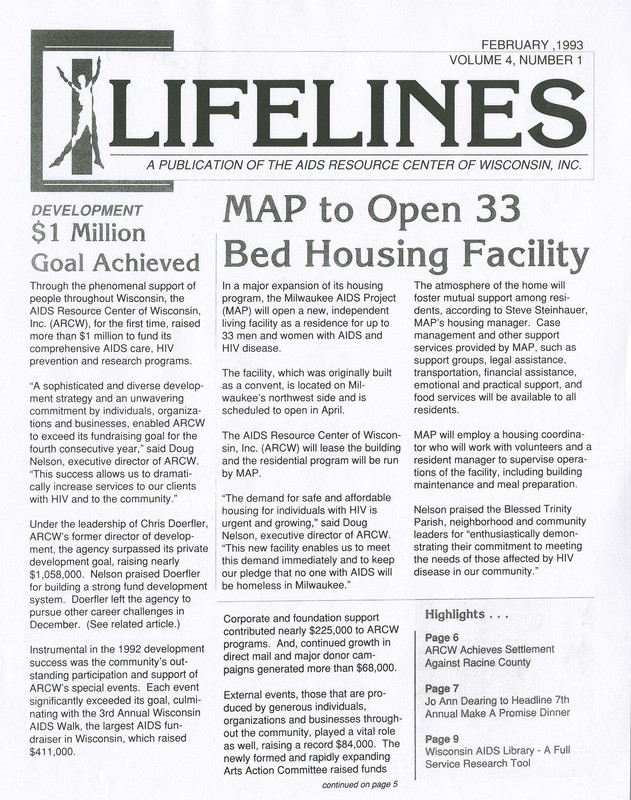ARCW Social Services
ARCW provides support to HIV patients in addressing significant barriers to HIV treatment such as poverty, poor nutrition, homelessness and legal problems. The severity of these factors can prevent many from following their HIV treatment plans.
Food pantry. In the aftermath of an HIV diagnosis, good nutrition is usually low on an individual’s list of priorities. ARCW has long recognized the importance of a nutritious diet of healthy foods. It opened its first food pantry in 1990 and now operates seven pantries throughout Wisconsin.
Legal services. People who have HIV disease are entitled to certain legal rights. Yet they still confront issues of discrimination, denial of benefits and refusal of health care. ARCW opened its legal clinic in 1989 and its dedicated attorneys have long fought to secure the rights of thousands of HIV clients.
Housing. Because many HIV patients live in poverty, ARCW understands the role that safe, affordable housing plays in their lives. Through rent assistance and residential housing services, ARCW resolves housing problems enabling patients to focus on their HIV treatment plans. In 1993 ARCW opened “Wisconsin House,” a large long-term residence for adults with HIV disease.
Case management. Navigating the health care system is difficult under the best circumstances. Trying to do so with an HIV diagnosis adds much greater complexity. ARCW implemented case management in 1986 to coordinate the needs of its clients. The case manager helps clients efficiently access necessary services including health care, counseling, housing, legal and financial assistance.

